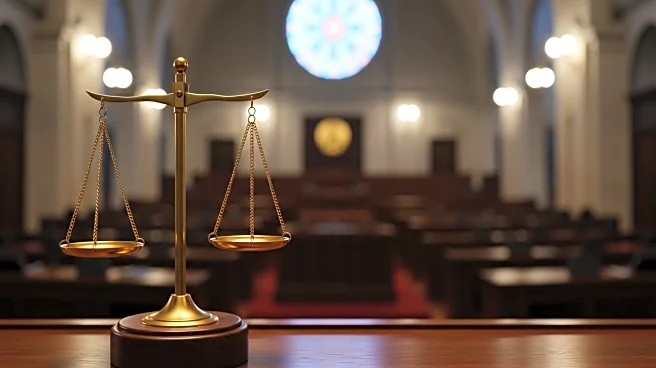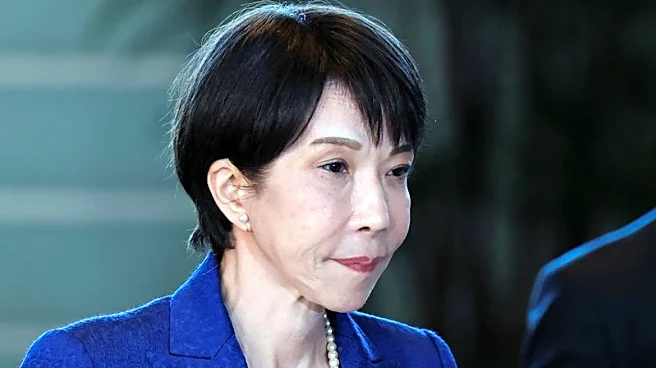What's Happening?
Costa Rican President Rodrigo Chaves appeared before lawmakers to deny corruption allegations, marking the first time a sitting president in Costa Rica has defended himself in such a manner. The allegations involve Chaves allegedly pressuring a producer to allocate funds to a former campaign adviser. Chaves claims the charges are politically motivated, orchestrated by the attorney general and Supreme Court magistrates. The panel of lawmakers will compile a report for Congress, which will decide whether to lift Chaves's immunity, allowing prosecution.
Why It's Important?
This unprecedented event in Costa Rican politics underscores the tension between political figures and judicial authorities. The case highlights issues of political immunity and accountability, potentially affecting public trust in governance. The outcome could set a precedent for handling corruption allegations against high-ranking officials, influencing future political and legal processes in Costa Rica. The situation also reflects broader regional challenges in combating corruption and maintaining democratic integrity.
What's Next?
The panel of lawmakers will prepare a report for Congress, which will vote on whether to strip Chaves of his immunity. The timing of the vote remains uncertain. The decision could impact Chaves's political career and influence upcoming national elections. As Costa Rica does not allow presidential reelection, Chaves's political future may hinge on the outcome of these proceedings. The case may also affect Costa Rica's international reputation regarding governance and corruption.










